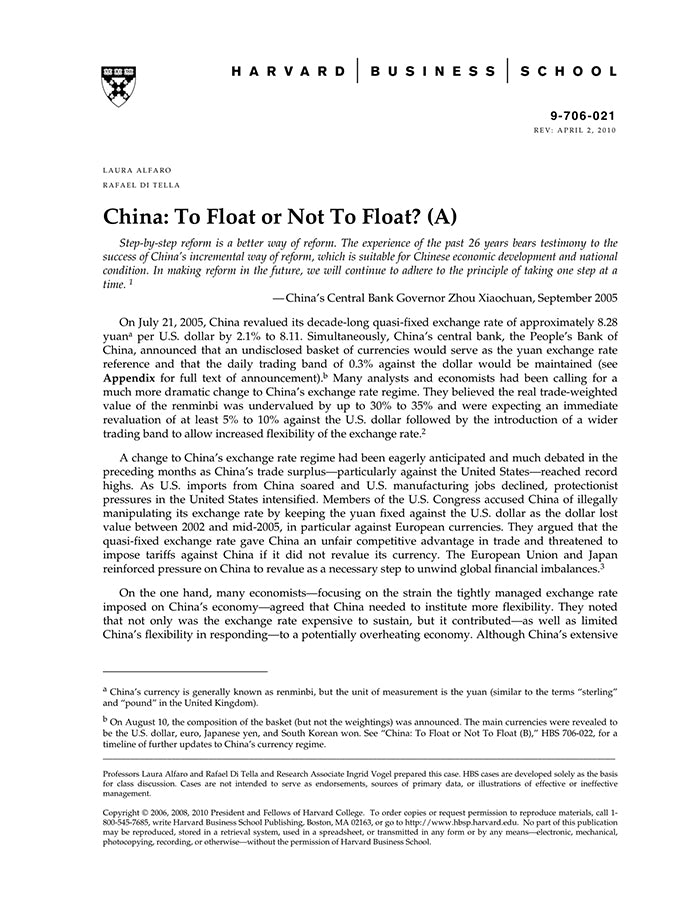China: To Float or Not to Float? (A)
受取状況を読み込めませんでした
On July 21, 2005 China revalued its decade-long quasi-fixed exchange rate of approximately 8.28 yuan per U.S. dollar by 2.1% to 8.11% and, at the same time, introduced a more market-based exchange rate system. Many analysts and economists were disappointed with what they considered too small a change and called for more flexibility in the U.S. dollar/yuan exchange rate. Modification to China's exchange rate regime had been eagerly anticipated and much debated in the preceding months as China's trade surplus against the United States reached record highs and as friction intensified with Europe and Japan. Also, analysts argued that the tightly managed exchange rate put a strain on China's own economy. Not only was the exchange rate expensive to sustain, but it contributed to--as well as limited China's flexibility in responding to--a potentially overheating economy. Although China's extensive controls on the movement of capital into the country helped to counteract some inflationary pressure, controls were becoming more porous as China increasingly integrated with the world economy. It remained to be seen what China would ultimately choose to do with its exchange rate regime.
【書誌情報】
ページ数:30ページ
サイズ:A4
商品番号:HBSP-706021
発行日:2006/3/2
登録日:2011/6/27


